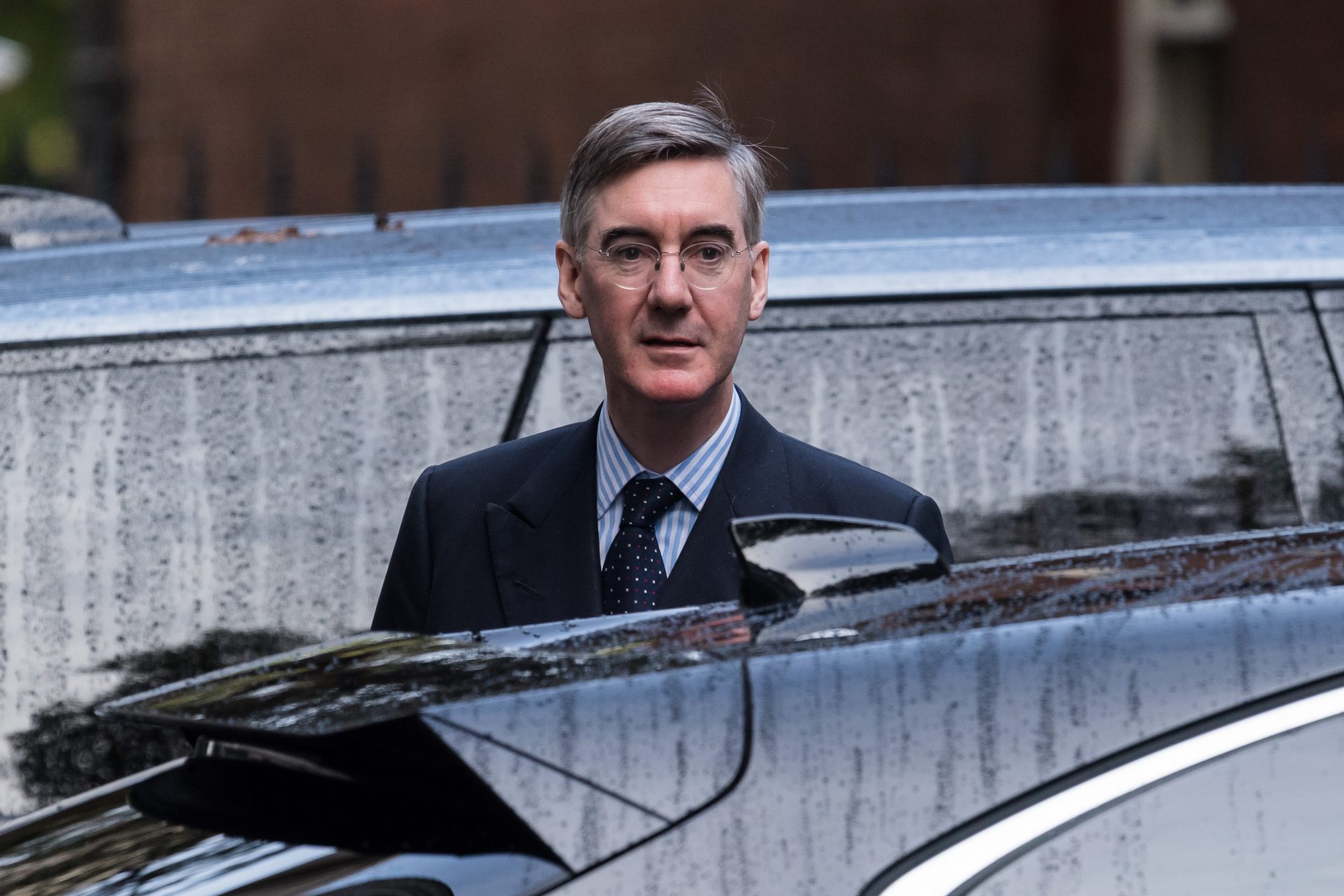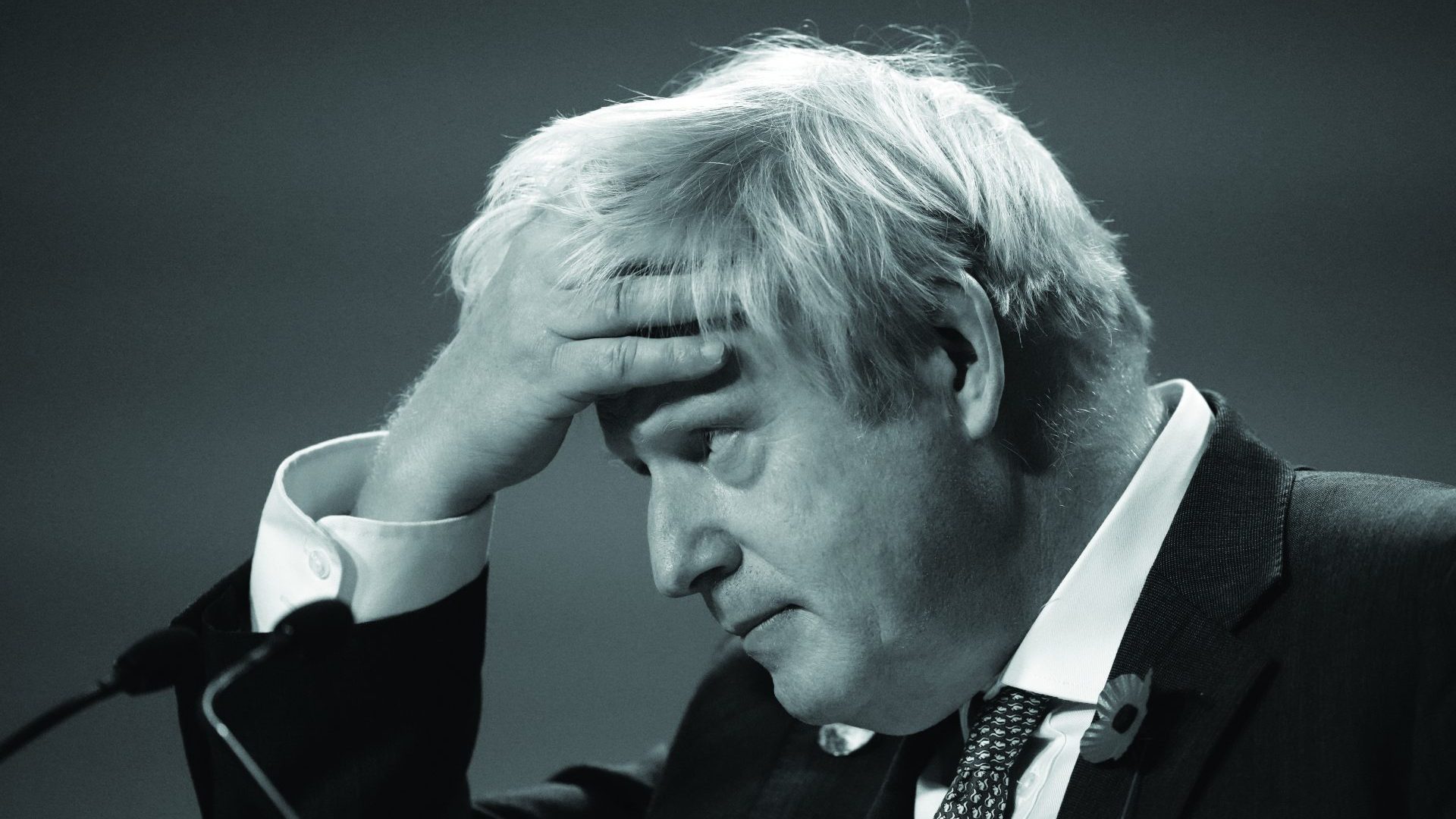The botched attempt to clear Owen Paterson has, deservedly, led to the end of his career. It should also mark the end of Jacob Rees-Mogg’s tenure in frontbench politics.
Chief whip Mark Spencer is taking the brunt of the blame for this debacle, but Tory knives are being sharpened for the leader of the house, too. Leaks claim that he and Spencer were dual drivers of the plot to block Paterson’s suspension by setting up a new, Tory-majority committee to rewrite parliamentary roles.
The Sun alleges Rees-Mogg then told Boris Johnson the sieve-like plan was “watertight”. Yet once floated, it sank almost instantly, taking Tory credibility and poll ratings down with it.
The leader column of the Times, which has moved closer to Johnson’s government in recent months, today excoriates Rees-Mogg. “The greatest culpability lies with those who orchestrated this assault on the integrity of the political system,” it says, castigating him for his “effort to establish a sham committee.” Given that his father William was editor of the paper from 1967 to 1981 and later spent nearly 20 years as one of its columnists, this should provide a deeply shaming moment of reflection for Jacob. It will not.
Instead, he will do what he did in the Commons this week – rail against the bias and trickery of others while recognising none of his own. His laughable complaints about Labour partisanship as he attempted to effect an act of supreme Tory partisanship were, correctly, laughed at. For someone keen on trite quotations, he seems blissfully unaware about the one involving the mote and the beam.
Rees-Mogg’s defence of Paterson as a whistleblower is easily rejected – as it was by both the commissioner and the committee on standards – because of his repeated attempts to promote the companies paying him while ostensibly exposing the failings of others. His statement that the suicide of Paterson’s wife during the investigation constituted “punishment enough” may have come from a more sincere place, but it was still inappropriate and distasteful. Beyond Westminster, people are punished for wrongdoing every day, regardless of whatever horrors and hardships they and their families have faced in the interim. Consideration is usually given; in Paterson’s case, he was facing a 30-day suspension.
Incompetence, dissembling, trickery – all of these would be good enough reasons for a decent prime minister in a decent government to get rid of Jacob Rees-Mogg. There are side annoyances too – his lack of care for colleagues in going maskless as Covid deaths spike again; his idiotic, stuck-in-the-past quip that the fishing license crisis happened because the French are “always grumpy” in October due to the anniversaries of Trafalgar and Agincourt, made at a time of sensitive negotiations with Emmanuel Macron’s government.
Perhaps the biggest reason for Jacob Rees-Mogg’s time in frontbench politics to end, though, is the claim, which Politico says is supported by multiple sources, that the whole Paterson fiasco was cooked up by a group including Rees-Mogg, Spencer and Downing Street advisers in meeting with “Paterson and his friends in the Brexiteer ‘Spartan’ group of MPs”.
Unbelievable as it is that Paterson should be invited in to help devise the manner of his own escape, it’s even more jaw-dropping to see the Spartans’ corrosive influence on the government still intact. Having steered the country towards calamity, they are repeating the trick with their own party.
If he wants to regain a semblance of credibility, Johnson should cut ties with them – starting with Jacob Rees-Mogg.





